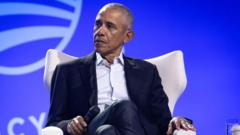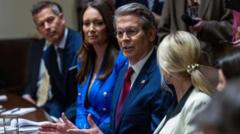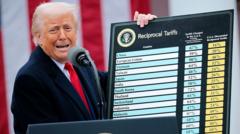As President Trump intensifies his conflict with Harvard over funding and policy demands related to diversity and anti-Israel protests, other universities like Columbia are beginning to adopt more assertive stances on defending their academic autonomy.
Harvard and Trump Clash: A Battle Over Academic Freedom

Harvard and Trump Clash: A Battle Over Academic Freedom
The escalating rivalry between President Trump and Harvard University sets the stage for broader implications on U.S. educational institutions.
Amid rising tensions, President Trump has sharply escalated his conflict with Harvard University by freezing $2.2 billion in funding and threatening to revoke its tax-exempt status. This confrontation marks a significant escalation in the battle between the Trump administration and the nation’s oldest university, which could have wide-ranging implications for other academic institutions across the United States.
Harvard has firmly rejected Trump's administration demands, which sought changes in the university’s diversity hiring practices and policies regarding tolerance for anti-Israel demonstrations. Despite the financial pressure, with an endowment of $50 billion, Harvard is well-equipped to withstand the funding freeze and remains steadfast in its refusal to comply.
The situation has sparked a ripple effect among other colleges, with institutions like Columbia University taking notice of Harvard’s resistance. The newly appointed acting president of Columbia pledged to uphold the university's independence and autonomy against governmental overreach, stating that the university would not be compelled to capitulate to federal demands.
As critics warn that the Trump administration’s actions may represent an assault on academic freedom, the debate surrounding the university policies is likely to intensify. It remains to be seen how other universities will respond as the battle between Trump and Harvard unfolds.






















